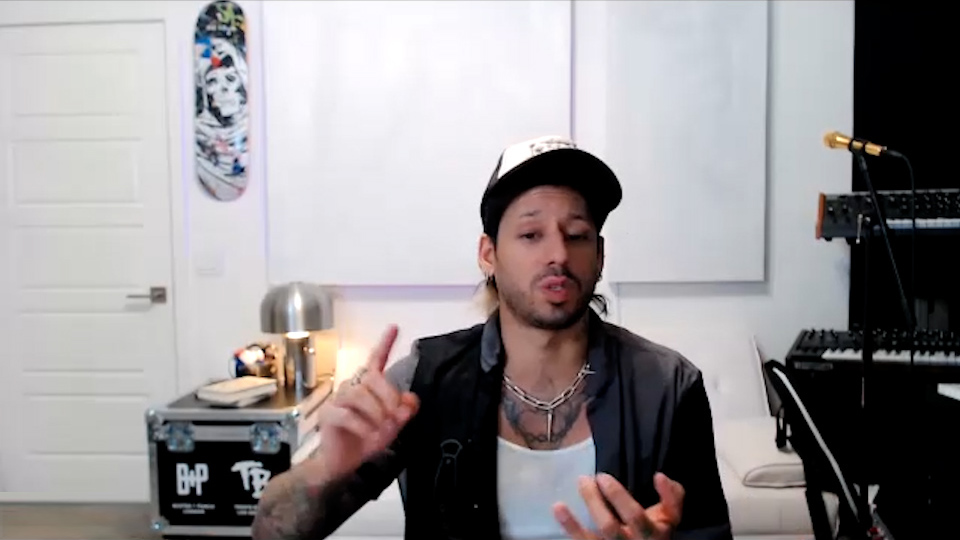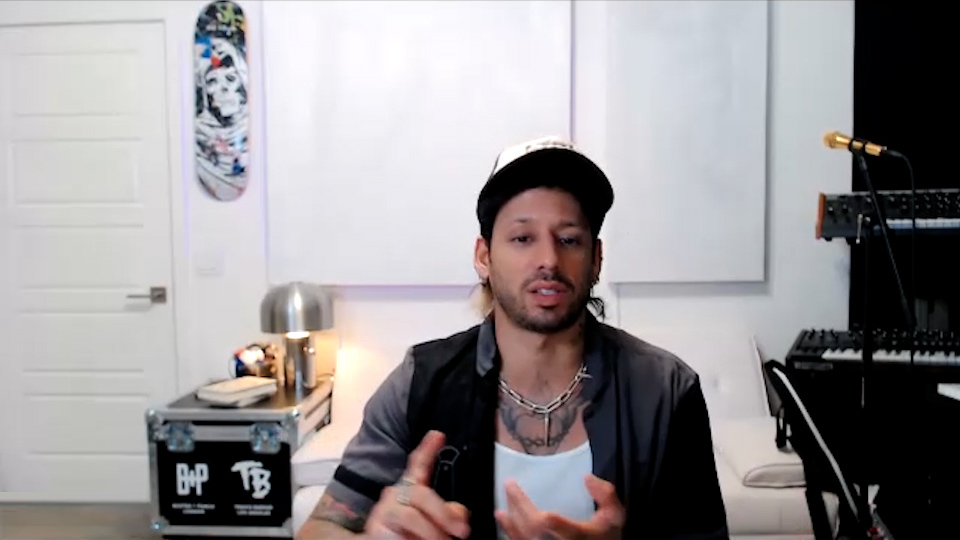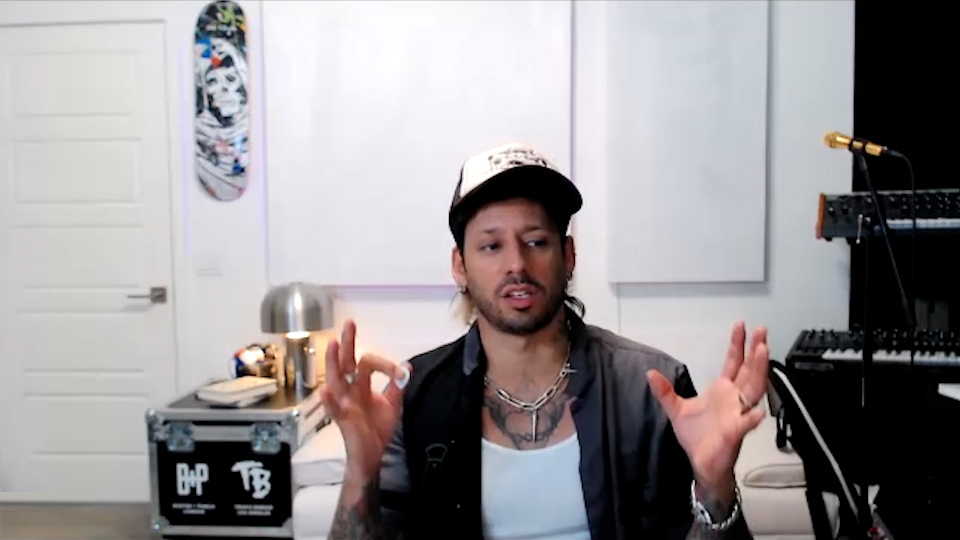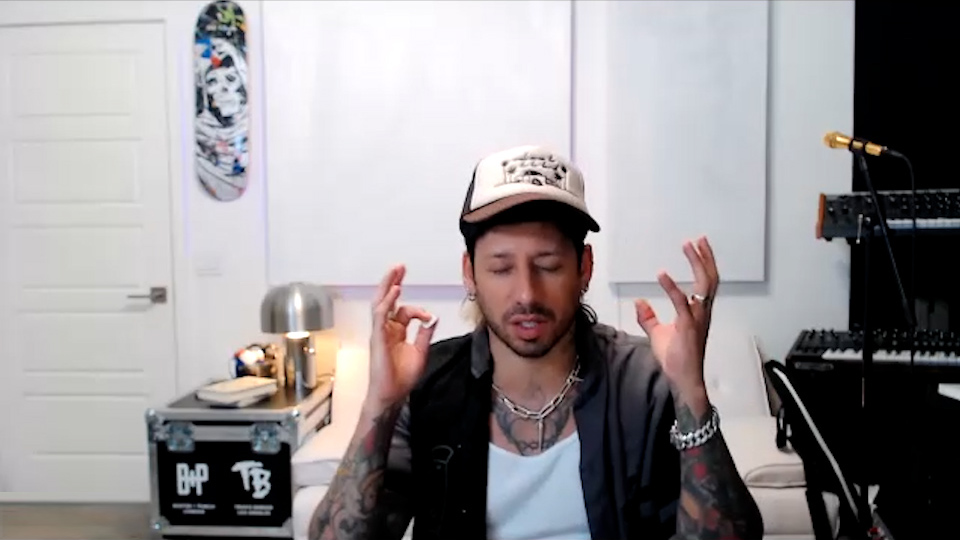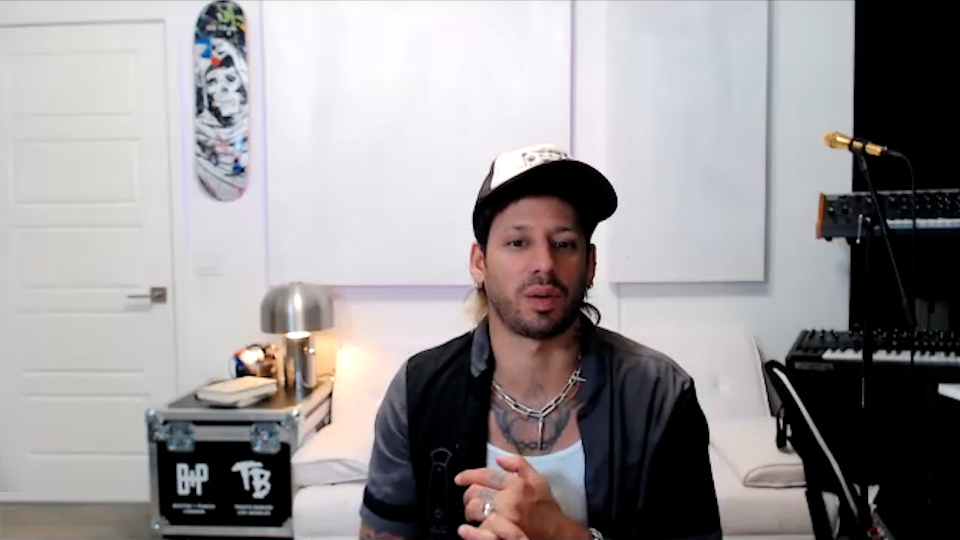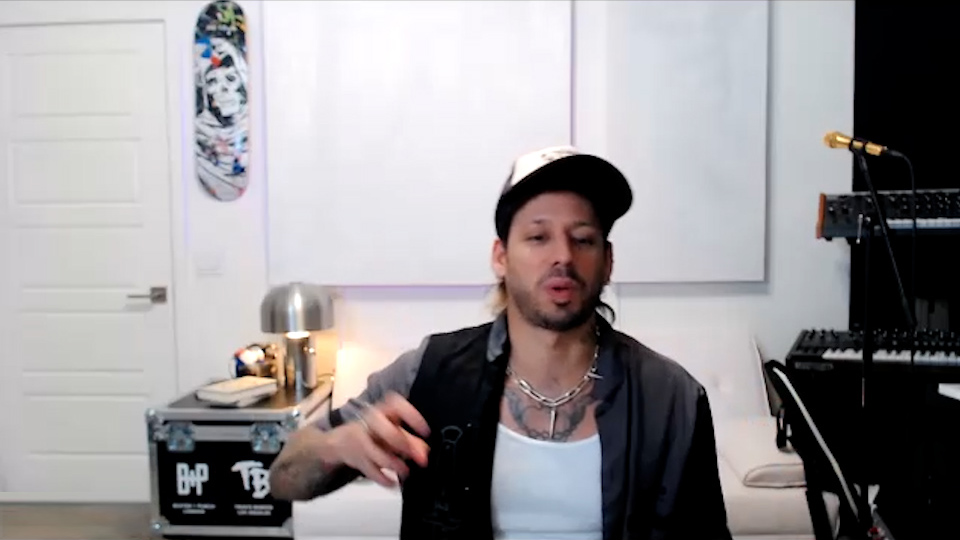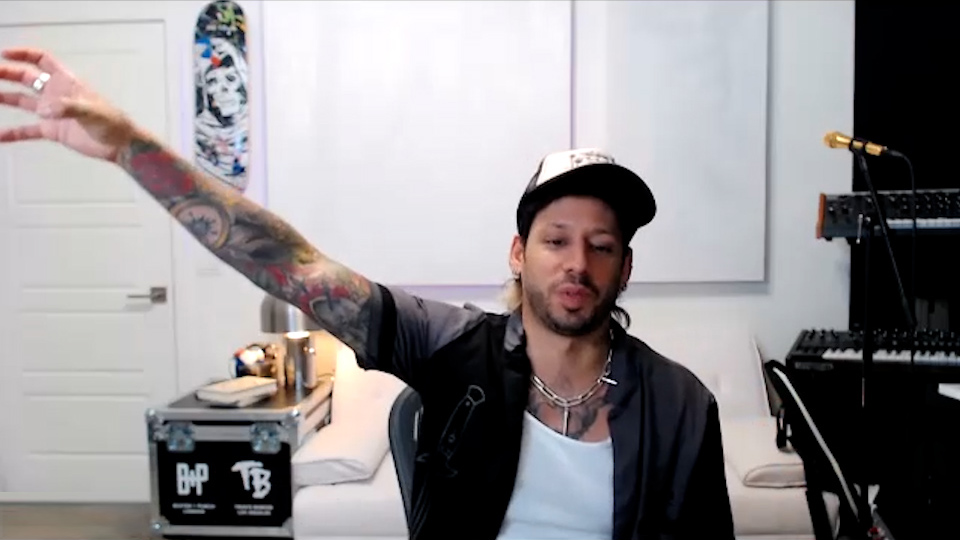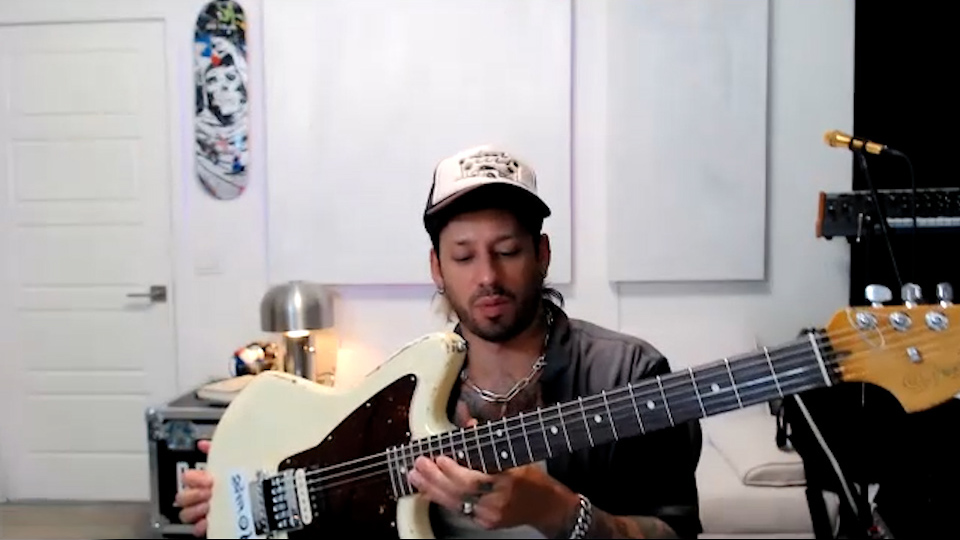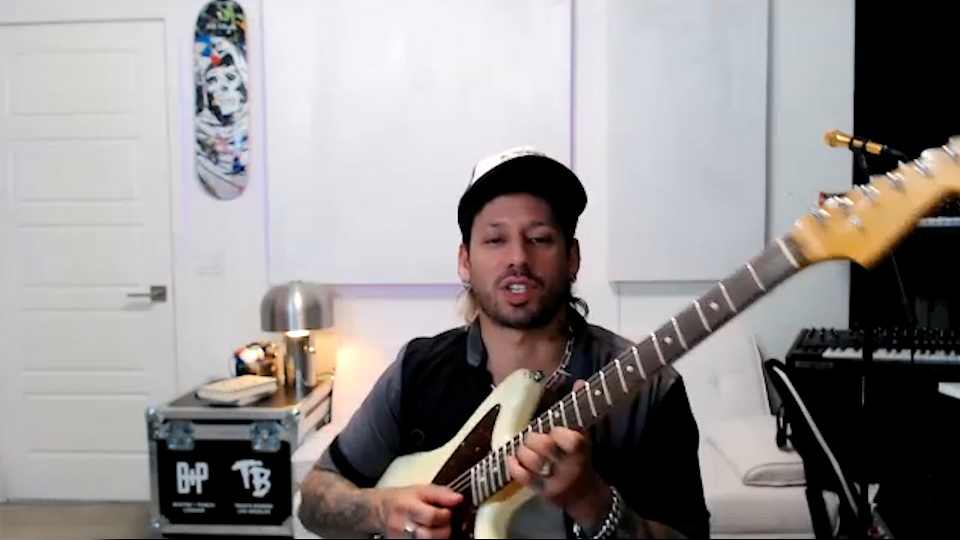Recent Updates:
Aristides and the Making of the Multiscale EverTune Bridge
ESP Guitars / EverTune at NAMM 2024 / Day 3
Keyan Houshmand / EverTune at NAMM 2024 / Day 3
Ormsby Guitars / EverTune at NAMM 2024 / Day 2
Balaguer Guitars / EverTune at NAMM 2024 / Day 2
Ibanez Guitars / EverTune at NAMM 2024 / Day 1
Aristides Guitars / EverTune at NAMM 2024 / Day 1
EverTune Price Increase November 10, 2023
EverTune TV Episode 008: Kevin Thrasher Gruft
ICYMI: Ola and Thomann Talk EverTune
EverTune Featured Installation: Epiphone
EverTune Review on Know Your Gear!
New Jackson Models in Guitar World
ICYMI: Excellent EverTune Argument
The EverTune In-House Installation Gallery
New EverTune Factory Models from ESP
New EverTune Factory Models from Jackson
New EverTune Factory Models from Ibanez
Aristides Guitars Featured Gallery
EverTune Announces the EverTune Bass Bridge
Jerry McPherson Awesome Unboxing Video
Tommy Henriksen and EverTune in Guitar World
EverTune Review in GuitarSpace
View AllEverTune TV Episode 008: Kevin "Thrasher" Gruft
EverTune's Matt Blackett sits down with guitarist/producer/engineer Kevin "Thrasher" Gruft (whom you might know as K-Thrash). Thrasher talks about his guitar work with his band Escape the Fate, as well as producing and engineering for Avril Lavigne, Machine Gun Kelly, and Blink-182.
❯❯❯ Time Stamps ❮❮❮
0:00 Intro/Escape the Fate/working with Howard Benson.
3:10 Guitar influences, shred chops.
6:08 Working as a producer with Travis Barker and Machine Gun Kelly, getting the best out of an artist and a mix.
8:38 Getting Machine Gun Kelly to use EverTune in the studio.
10:00 Working on "Edging" with Blink-182, and using custom EverTune-equipped Fender Jazzmasters.
14:45 Discovering EverTune with ESP in the Escape the Fate days.
15:29 Gigging with EverTune with Landon Barker, opening for Blink-182, setting the system for optimal bending.
19:40 EverTune bass bridge teaser.
20:15 How EverTune influences workflow in the studio.
22:03 What's the latest, what's up next?
❯❯❯ Kevin "Thrasher" Gruft online ❮❮❮
➜ K-Thrash Instagram
https://www.instagram.com/kthrash
(This transcript has been edited)
[00:00:23] Let’s go ahead and just get right into it. Even though you had already been working and playing for several years, I think most people probably discovered your playing with Escape the Fate, and the first record you did with that band was Hate Me, and that was produced by Howard Benson, a guy who’s known for getting great guitar tones. Walk through that experience a little bit: joining the band, getting into the studio with him. What was that process like and what did you learn in the studio?
Yeah, I had a crazy journey for Escape the Fate in that I had filled in a few times and guitar players were leaving the band. And then eventually I switched over to engineering and then I wasn’t in the band. Then they called me back for an Avenged Sevenfold tour, which I had to do. From there I ended up joining the band, and I think we toured off a record they had just released.
Then we went into the studio with Howard Benson, and I learned so much from Howard as a producer and every producer I’ve ever worked with my career, I’ve always tried to get close with and kind of absorb as much information as I could. And he has a great engineer named Mike Plotnikoff, and they have it set up like a plug and go. They have like all their heads stacked up in the corner of the room. They have several cabinets miked up at all times. So you can just quickly audition different heads. They have all the classics, a few Wizards, some old Marshall heads, 5150. We ended up going with the 5150 on a lot of the rhythms.
So it was just so easy to audition guitar tunes. I think Mike Plotnikov is such a great engineer and he’s such a great engineer at recording guitarists where you’ll play the rhythm part all the way through. And he closes his eyes and he’ll listen to your take. And he kind of like really tunes in and listens for any imperfections. And if there’s any mess ups, he makes you redo it. He’s so precise. We’ll spend an entire day just doing rhythm guitars. And now fast forward to we’re like kind of technology is and the rate of how I work on songs we’re finishing drums, guitars, bass leads and vocals in possibly a single day. You know what I mean? But I think there is a thing to spending a lot of time on tracking and getting solid guitar parts. And I think that equates to a great guitar sound.
[00:06:07] You got into the producing and engineering game pretty quickly, producing your own stuff, but also working with artists like Gwen Stefani, Avril Levigne, Machine Gun Kelly. And so let me ask you this: What in your mind is the key to getting a great performance out of the artist? And then what’s the key to turning that performance into a great mix in the studio?
It all comes from the source. So on Machine Gun Kelly records, the whole foundation of those records was the drums because Travis [Barker] was the executive producer and from the drums, he’s such a perfectionist. He’s always going to go in and make sure his parts are perfect. I send him like solid bounces of his drums and he’ll listen with his eyes closed or on a treadmill and listen to the drum parts over and over again.
He’ll be texting me notes. He’s like, “Hey, check out one minute, 30 seconds. There’s a weird high flam and check the kick out.” And we edit the drums and we make sure everything’s perfect or he’ll replay the entire thing. So we have a solid foundation with that. And so I don’t have to think about drums too much because I know with Travis at seat of the drums, those are gonna be perfect.
On top of that, we have bass and, and when I came to the MGK record, there was kind of like a bit of a looseness sort of vibe happening. And I just came from the Howard Benson world and that whole school of thought where the performances have to be solid, you have to check intonation, make sure the guitars are in tune and these sessions were late night, smoking, drinking and all that stuff. And I’m coming in hungry and eager to like, really prove my worth to everyone. So I came in and I feel like I really brought that bit of like being a little strict, like on guitar performances. And I was like, not afraid to speak up and be like, Hey, that was cool, but completely out of tune. Let’s tune that guitar up and go section by section. Let’s get the verse tight. And I literally did the Mike Plotnikoff thing of soloing the guitar, making everyone listen back. Okay, let’s punch in this one G chord. Can we tune to the chord? It’s funny because this literally does lead to the EverTune conversation. MGK, he’s a pretty aggressive player and he’ll bend the strings with his left hand. He’s like crazy good now. He’s so good at guitar. I think just from all the touring he’s done on this last record. But when we were first starting off, he was really like kind of like really gripping the neck and bending the strings. And we all know that’s going to make the guitar go out of tune. And we had, I think the first the guitar we had with an EverTune at the studio was a Schecter, and I don’t think he even had the best pickups in it. And it wasn’t the best tone, but the fact that things stayed in tune, I would take that a thousand times over the best vintage guitar. So any time you want a guitar, you’re like, “Let’s play this one. This one’s great.” He could play octave parts or whatever part you want to add. And I knew I could rely on it to be in tune, you know, as long as the right notes were being played.
[00:09:36] Right. Yeah, it’s good, but it’s not that good. [Laughs.] You’d still have to play the right notes. That’s a great answer. And it’s sort of a fascinating approach to this because you don’t want to kill the vibe. You want people to be how they’re going to be. But you have a job to do when you’re there and you want it to sound a certain way. And it sounds like you struck a really cool balance with that. You mentioned Travis. Obviously, what people are talking about nowadays is your work on the latest Blink stuff. Obviously you’ve known those guys for quite a while, but how was that? How was that experience working on “Edging”? Which is a great song title, by the way.
Thank you. I think I might have like even typed that. The song isn’t even about edging. They’re just like funny people. 24/7. They’re literally making dick jokes all day long. And so it just brings the humor out in a room, which makes the process kind of fun.
But that’s what I was titling that that particular song, which has the shuffle pattern, which they hadn’t done before, Travis told me he was trying to do it on several albums, and that particular song we tried it out, and it ended up being really cool. We ended up doing the whole record. But yeah, it was it was a crazy thing to experience these three longtime bandmates, best friends that have kind of drifted apart. Tom hadn’t been in the band for several years. He’d just rejoined the band and it was just the three of them meeting and me and it was all secretive. We would sneak Tom in through the back door of the studio, so, you know, paparazzi wouldn’t catch a glimpse of it. And Mark would go through the front and we’d have like, these really covert, secret sessions. I couldn’t even tell anybody that we were working on this. But it was so cool. It was it felt like they got right back to where they left off on the first session. You know, we had our first and our meetings there and we were playing demos and stuff and without going into too much detail on the record, it was just really dope to see them create music and see the dynamic that is Blink.
Well, you must have been aware of just how happy this was going to make the fans when they could talk about it and when this did see the light of day. People are losing their minds over it.
Totally. Yeah. I think there’s just a particular chemistry that the three of them bring to the table that’s unmatched.
[00:12:34] Did they use EverTune-equipped guitars for the recording?
Well, yeah, it’s so funny because again, this is a guitar that was made from Fender because I was working on the Blink record. And we literally modeled these guitars off of one of Mark Hoppus’ guitars. He’s the bass player, but he and his guitar tech, Robert, figured out this formula. They put an EverTune on a Jazzmaster, one pickup, custom shop and it literally sounded and felt so good. I’m like, this guitar sounds incredible. It has like the feel and look of like a classic guitar, but has like this brand new technology on it. So we all we were all obsessed with this guitar. I think we pushed Fender and they’re like, “Yeah, we’ll just make you guys some.” They’re so cool about it and the custom shop made us like pretty much replicas of the Mark Hoppus one, and that guitar did get a lot of use. But of course Tom [DeLonge] was there too, so he played his signature model as well on a lot of stuff. But I think in any writing sessions, that’s always the first guitar everyone’s going to pick up because it’s going to be in tune.
Check out the full EverTune TV episode below:
❯❯❯ Related Videos ❮❮❮
Watch Thrasher burn with Escape the Fate "Just a Memory" (Official Video)
Thrasher with his EverTune-equipped custom Fender, onstage with Landon Barker "Friends with Your Ex" Live
Hear some Thrasher-engineered EverTune guitars on the new Blink-182 song, "Edging."

